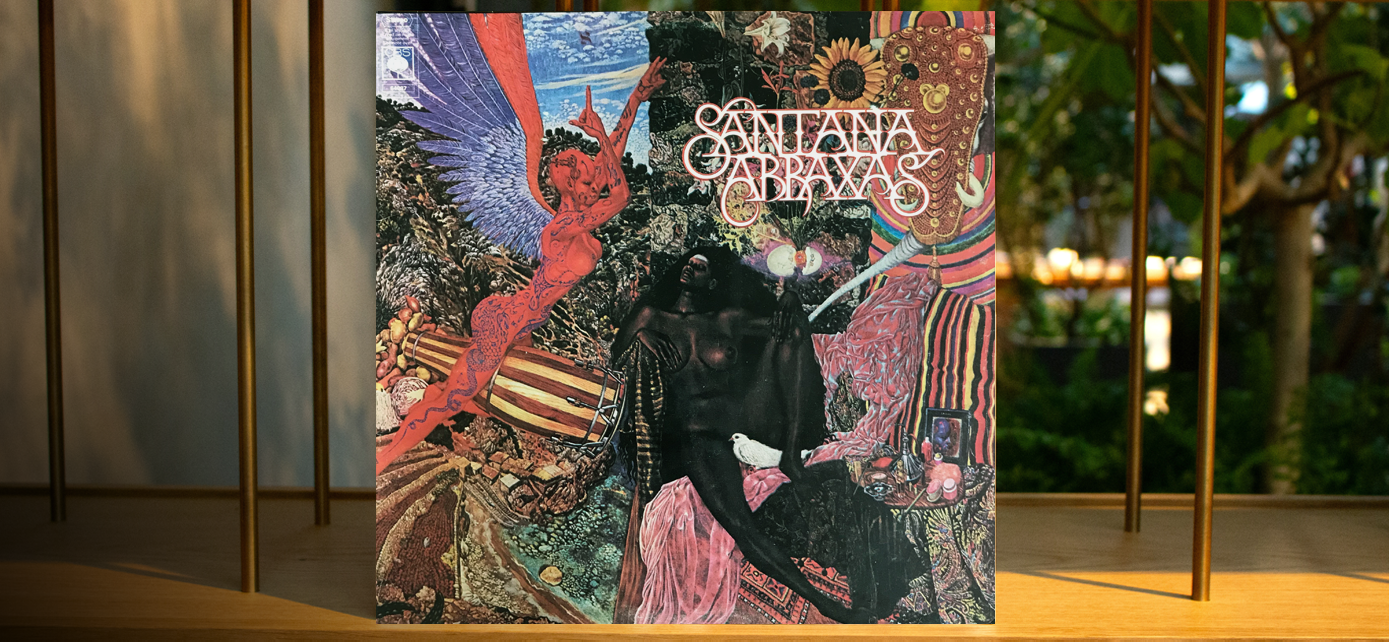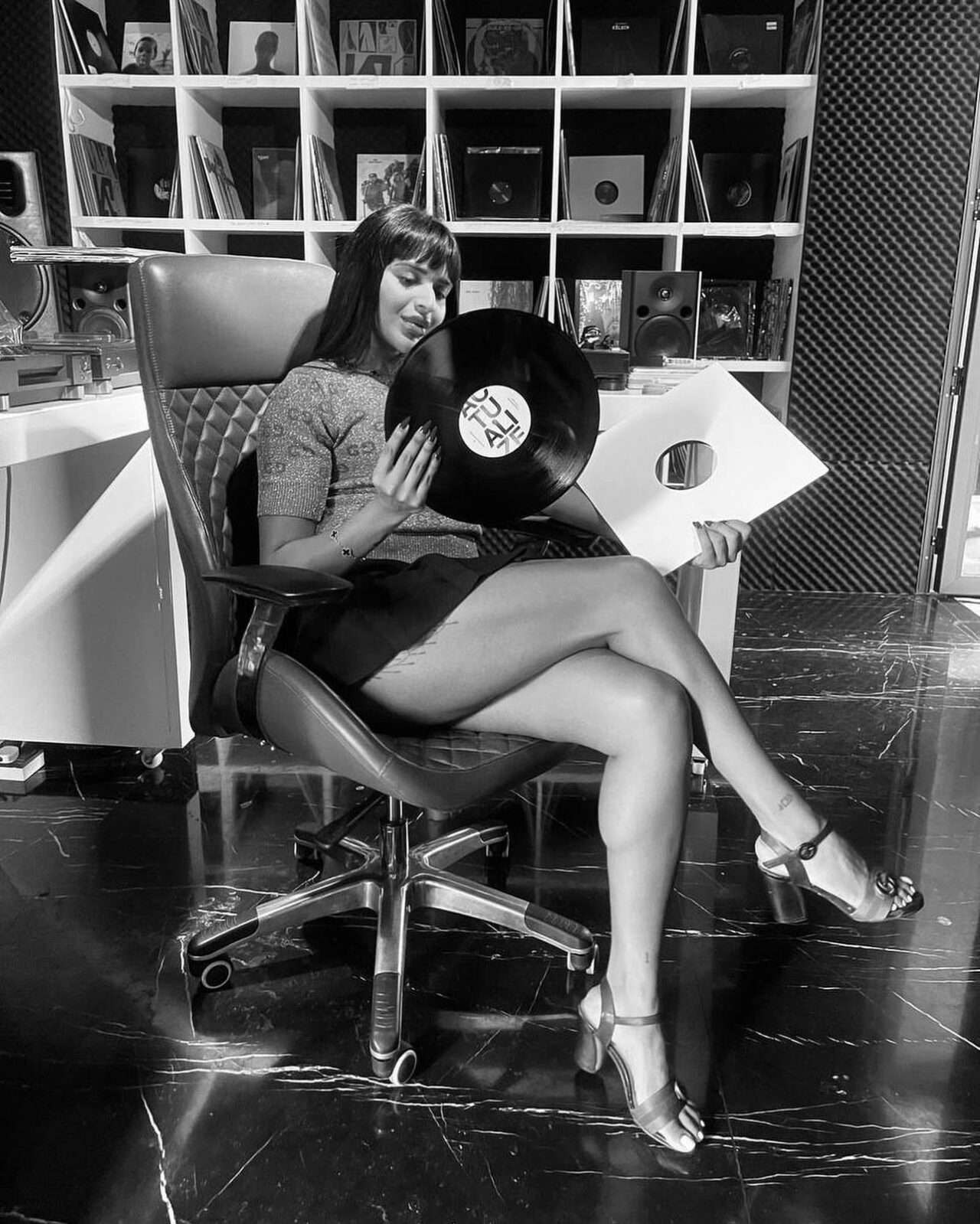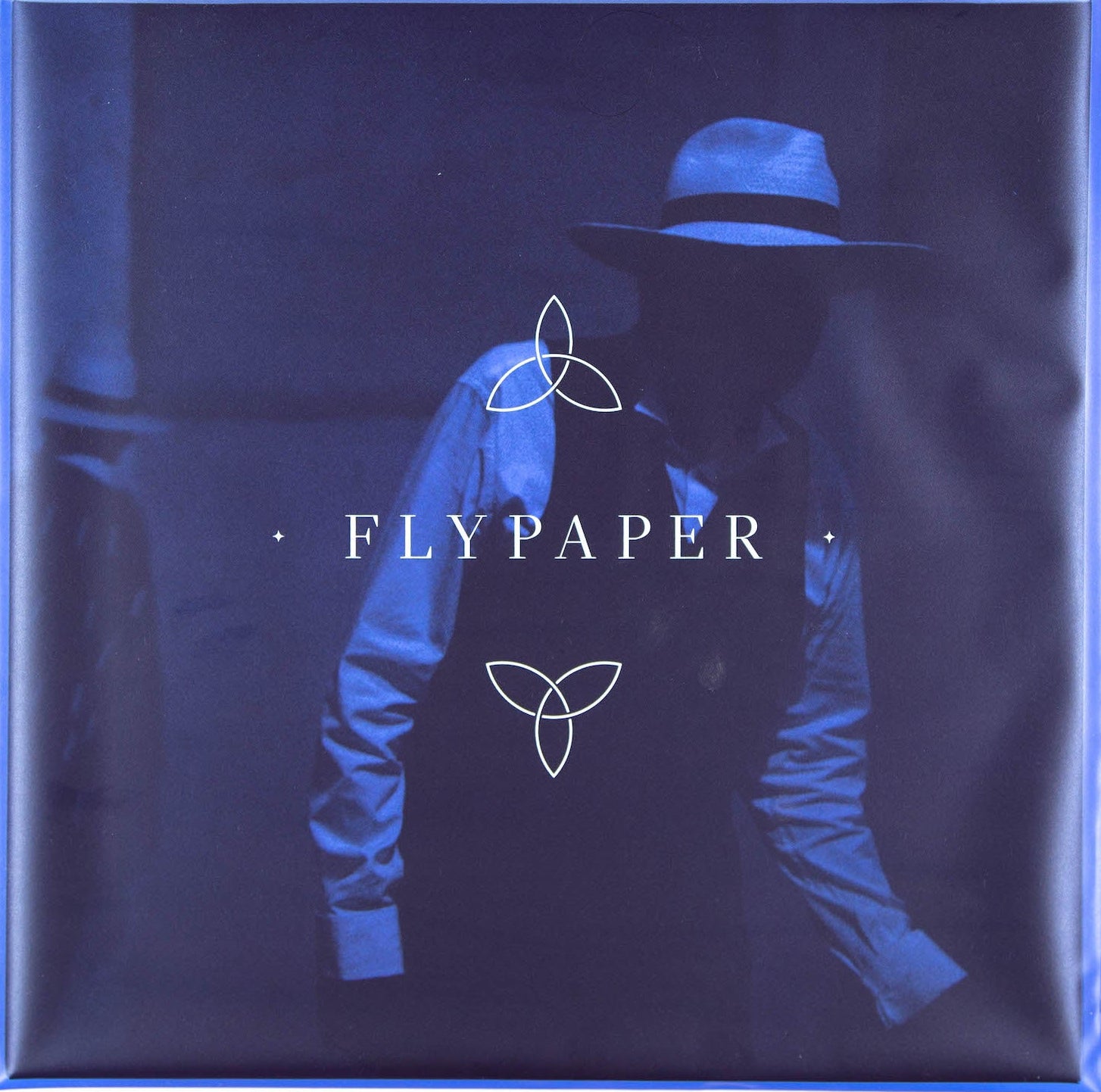
Permanent Rotation: Lady Tazz
Permanent Rotation is a series in which producers, DJs, and musicians go deep on the albums that have inspired them.
Lady Tazz is full of surprises. Born in Bangladesh, and with bases in Dhaka, Dubai, Toronto and Bogota, her multicultural upbringing and peripatetic lifestyle inform a unique approach to everything she does. From DJing, making music and running her kinky techno label Mind Medizin to helping run several family businesses, she’s a storm of productivity and accomplishment, all while subverting cultural expectations. Tazz’s rebellious streak makes sense when you hear about her parents’ love story. It also helps explain why the album that has impacted her most is Santana’s early classic Abraxas.
Tazz grew up listening to the Mexican-American rocker—“even though he's born way, way before me,” she’s quick to add—thanks to her parents, who were big fans and young romantics. “Mom and Dad are like the embodiment of a perfect relationship,” she says. When Tazz’s mother was just 13 and her father was 16, they fled Bangladesh together because their parents wouldn’t accept their relationship. They paid people to make them new passports with fake birth dates and took off to Sweden. When Tazz was 13, her father would play Santana on the CD player, especially the Abraxas album. The concept of genre didn’t mean much to her as a child, but she appreciates the record more in hindsight. “I've never known an artist that can mix rock and blues and salsa together like this and make it sound so beautiful,” she says.

Her parents might have come from a conservative culture, but like Tazz, they had little regard for restrictive customs and traditions. After their stay in Sweden and a longer stint in Canada, they eventually returned to Bangladesh, where her father owned nightclubs. They were into disco, Tazz says, and psychedelic rock like Santana, but also Sade, Boney M, Enigma and industrial rock. “My parents were a big help in opening me up to good music,” she says. Studying psychology at university also deepened Tazz’s understanding of Abraxas. “In Jungian theory, the word abraxas basically represents a being higher than God — something utterly unattainable and impossible to conceptualize,” she says. “This is exactly what Santana was trying to explain in the album — it combined a lot of spirituality and psychedelia, and the music was full of sexuality, and soul, taking its roots from the percussive sounds of Afro-Caribbean music.”
"Oye Cómo Va", originally recorded by legendary Nuyorican artist Tito Puente, is a standout to Tazz, as is the epic Latin rock instrumental “Samba Pa Ti” and the “soothing and ambient” opening track, “Singing Winds, Crying Beasts”, which kicks off with piano, tinkling bells and cinematic cymbals.
“I just love this band so much,” Tazz says. “Obviously there’s Santana with his guitar work and then you've got Gregg Rollie on that powerful Hammond organ and then the timbales and conga player José Areas, and Mike Carabello on congas too…they had the whole thing going on so perfectly.”The sounds of Abraxas are light years away from the throbbing, sensual techno that Tazz makes. She considers her production and DJing work as an opportunity to indulge an alter ego, while conga, samba and reggaeton represent her “soul sound” and the music she listens to most on an everyday basis.
Tazz decided she wanted to get into production and DJing aged 23, after a life-changing trip to Berlin. She went to production school in London, but while her mother was supportive, her father still struggles with Tazz’s decision to pursue DJing, even as she juggles it with her work for the family businesses. “Unfortunately, I fell in love with music so much,” she says. “I can't let go of this part of my life because then I will become shattered and depressed.” Her love of conga and salsa is a big part of why she keeps returning to Colombia, too, but as an artist it’s where she throws kinky techno parties. She’s taken her Mind Medizn parties back to Bangladesh, where she says the culture has come a long way to overcome oppressive traditions. “The younger generation are so open with their sexuality, I'm so proud of them,” she says. “Most of their parents were able to send these kids away for their education and they came back to Bangladesh and they’re confident and they’re not afraid to say what they want.”
Tazz believes her own confidence, alongside her sexuality, is her biggest power as a woman. “I'm a very seductive person, there's no shame in it,” she says. “I can get something done when I know another girl cannot, it’s just the way I move my hands, flick my hair, roll my eyes, there’s a power of seduction.”Perhaps this is why “Black Magic Woman/Gypsy Queen”, a medley that covers Fleetwood Mac’s “Black Magic Woman” and Gábor Szabó’s “Gypsy Queen”, is her very favourite track on Abraxas, and the song she wants her friends to play at her funeral. “It's so sensual,” she says. “It just shows how women with their beauty and their magic can do whatever they want.”
Lady Tazz has a remix for Gina Demarchi coming out on July 25 on Detroit Classic Gallery. Check out Mind Medizin's discography here.









